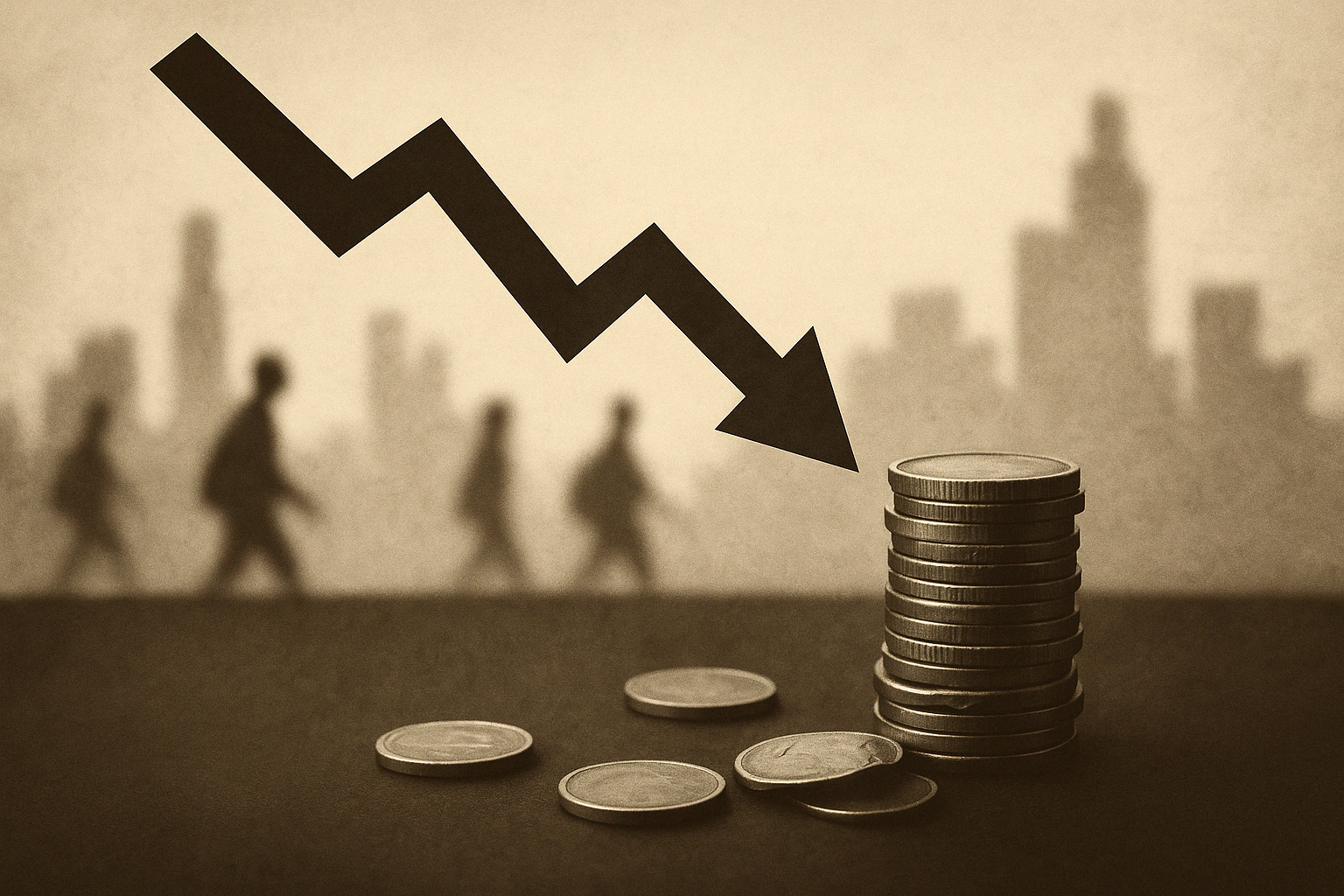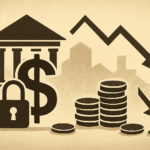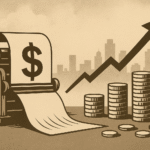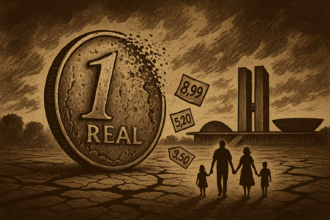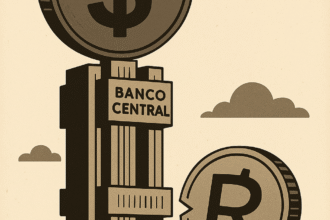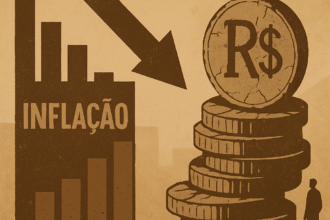When the government announces that inflation is “under control”, do you feel it in your pocket?
Are prices stable?
Has the rent stopped going up?
Has the shopping cart become lighter or more expensive?
No matter what the technicians say — inflation is a silent form of institutionalized theft.
And the tax you pay every day, even without having approved anything.
And the most perverse: without knowing where the money went.
The myth of “natural” inflation
Most people believe that inflation is “when everything gets more expensive”.
But that is just the consequence.
Real inflation begins when the government spends more than it collects — and covers the difference by issuing money or debt.
The State increases the monetary base, directly or indirectly, and puts more money into the economy.
Result: there is more money chasing the same goods.
Prices go up. Your purchasing power melts.
And the politicians pretend to be surprised.
Mises summed it up neatly:
“Increasing the quantity of money does not create wealth. It merely redistributes purchasing power — from the last to the first.”
Who profits from inflation?
Contrary to what many people think, inflation does not reach everyone equally.
It benefits whoever receive the new money first — large banks, government-linked companies, public sector.
These agents are able to buy before that prices go up.
As for the common citizen, the wage earner, the entrepreneur who works to keep his accounts up to date, receives last — with everything more expensive.
This mechanism is known as Cantillon effect: a forced redistribution of wealth, without transparency, without debate, no vote.
A State that spends and lies
In Brazil, the government insists on saying that it controls inflation with “responsible fiscal policies”.
But look what's behind the curtain:
- Loss-making state-owned companies continue to be supported.
- Spending on public wages and subsidies increases.
- The spending cap has been dismantled.
- The Central Bank is under pressure to artificially lower interest rates.
Meanwhile, the IPCA may even give in a little on the charts — but rice, rent, meat and medicine keep going up.
Inflation is not a technical problem.
It is a political decision.
Inflation is functional for the State
Why do governments love inflation?
Because it is the the only tax that can be charged without you noticing.
You don't see the invoice.
You don't receive a ticket.
But every month, your salary buys less.
Rothbard wrote:
“Inflation is a subtle form of confiscation. The government can tax people without raising taxes — it just destroys their currency.”
The cycle of dependency
When money loses value, the citizen loses autonomy.
He depends more on the government, seeks more “aid”, accepts more intervention.
Inflation It is not just an economic phenomenon — it is an instrument of domination.
And the cruelest thing is that the guilty ones themselves pose as heroes:
- “We will create a new program to combat poverty.”
- “We will readjust the minimum wage.”
- “We will expand subsidies.”
But it was the government itself that impoverished you.
What can you do?
- Understand that inflation is not neutral.
- Reject narratives who blame the market, businessmen, supermarkets.
- Look for protective assets: hard currencies, commodities, real assets.
- Demand fiscal responsibility — and real autonomy for the Central Bank.
- Report the money scam. A weak currency is a symptom of a government that spends too much.
🧭 Conclusion
The government doesn't need to raise taxes to take your income.
He just needs to spend more, issue more and lie better.
While you work, the real loses value.
While you save, the State prints.
And while you try to understand what's going on, the same old guys keep profiting.
Inflation is not an accident. It is a project.
📩 Tired of seeing your salary lose value while the State pretends that it's the market's fault?
Subscribe to the newsletter Economic Radar and receive analyses that expose the inflationary hoax — straight to your email, without filters.
